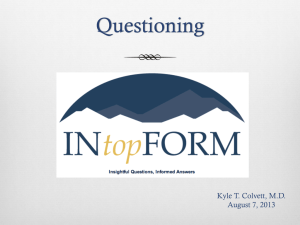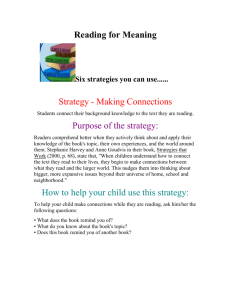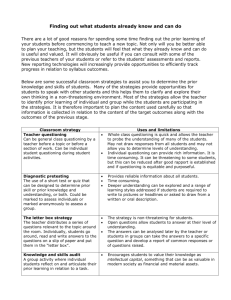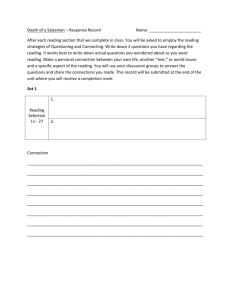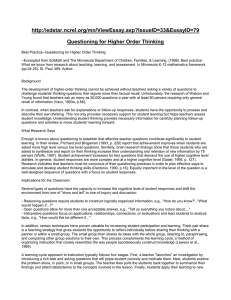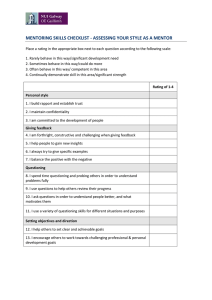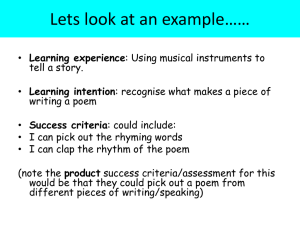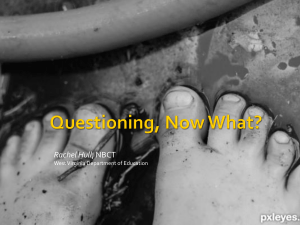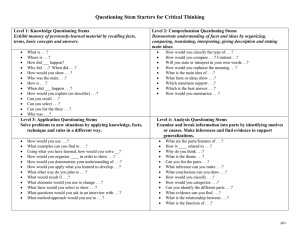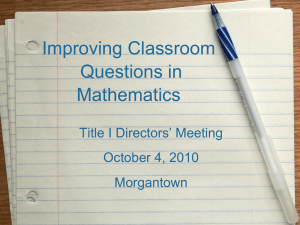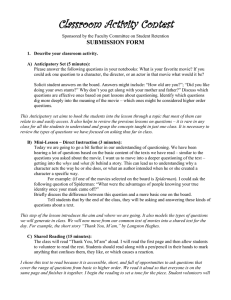Year 10 reading skills: Introduction to inferring
advertisement
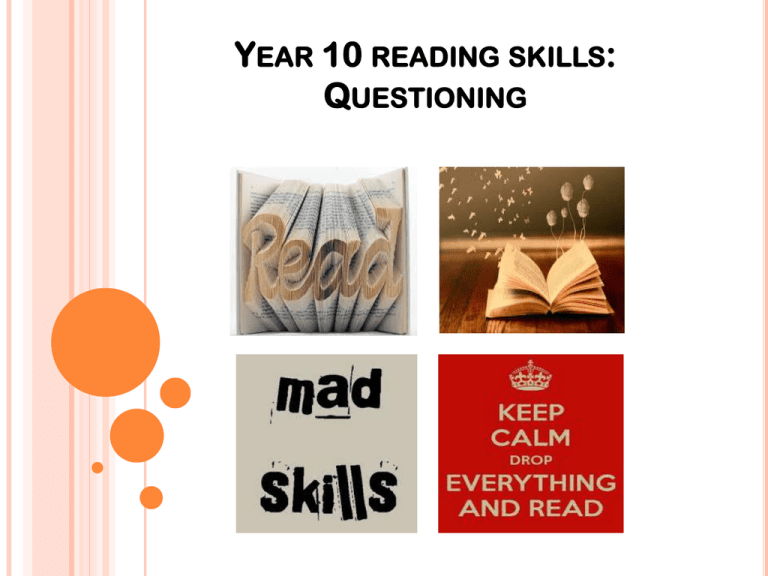
YEAR 10 READING SKILLS: QUESTIONING WHY QUESTION? Watch the following short video and take some notes about what it suggests about why we should ask questions: https://www.youtube.com /watch?v=O6ZnJIdgc1A What does this suggest about questioning what we read? WHAT GOOD READERS DO… An effective way to remember good reading habits is to remember this phrase: A good reader PAUSES: P: Establish a reading purpose A: Create an annotation guide U: Underline important points and write in the margins S: Stop to make connections E: Explore questions and unknown words or points S: Summarise QUESTIONING Good readers ask questions before, during and after reading to gain a deeper understanding of the text They explore their questions by drawing on the text, their own knowledge and through using outside sources TYPES OF QUESTIONS: QUESTION TYPE: LEVEL 1– BOOK (In the text) LEVEL 2 – BOOK AND BRAIN (Connecting text to brain) LEVEL 3– BRAIN (Beyond the text) What it involves: Information that retrieved directly from the text or words to be defined. Usually ‘what’ questions. Making connections between the text and the outside world, looking at similarities and differences and analysing meaning. Usually involves ‘how’, ‘why’ questions. Going beyond the text by using your imagination, making predictions, giving opinions about issues and justifying them, judging the text Example: What is the author’s main argument in this article? How does the author use persuasive language to express their main argument? If the author grew up in another time or place, what would their opinion on the issue be? Why? EXAMPLES OF QUESTIONS: Why did Stephen Hawking speak out against artificial intelligence? What does ‘cybernetic’ mean? Why is this an issue now? Are smartphones restricting our privacy and attention spans? How does artificial intelligence work? What predictions are made by scientists about the role of technology in the twenty-first century? EXPLORING QUESTIONS AND UNKNOWN WORDS OR POINTS • Construct a minimum of three questions and write them in the margins of the text • You can use the ‘Questioning’ handout to guide you, if needed • In groups of 4, you will seek to explore the answers to these questions through using the text, your prior knowledge, a dictionary, your textbooks, other books and internet sources • You can also brainstorm potential answers based on the information you already have, or connections you have made • Jot down the answers to your questions in your notebooks once you have researched the answers 15-minute timer: https://www.youtube.com/watch?v=_wdgjWqSjzs SHARE! Share a question and answer with the class when you are finished
